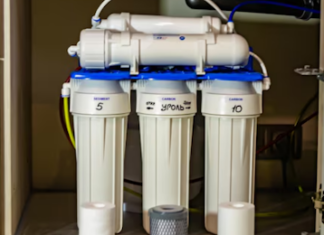Diarrhea in cats can be a stressful and concerning experience for pet owners. In severe cases, it can be a sign of an underlying health condition and should be evaluated by a veterinarian. However, mild cases of diarrhea can have multiple causes and be managed at home. This guide gives pet owners an overview of the causes, diagnostic tests, treatment options, and home remedies for dealing with cat diarrhea.
Causes of Cat Diarrhea
Various factors, including dietary indiscretion, infections, environmental changes, parasites, and stress, can cause cat diarrhea. Dietary indiscretion occurs when cats are exposed to new foods or ingest something they should not have. Dietary indiscretion is the most common cause of acute diarrhea in cats. Infections, such as salmonella, can also cause diarrhea. Environmental changes, such as moving to a new home or changing routines, can cause cats to experience stress-induced diarrhea. Finally, parasites, such as Giardia or roundworms, can cause cat diarrhea.
Diagnostic Tests for Cat Diarrhea
Diagnostic tests may be necessary to determine the underlying cause of diarrhea. For example, a physical and fecal examination may be performed to check for parasites. Blood tests may be used to check for infections or organ dysfunction. Abdominal radiographs may be used to check for foreign objects or masses. Ultrasound may be used to check for tumors or other abnormalities in the abdomen. Diagnostic tests may also include an abdominal ultrasound to look for signs of inflammation, infection, or tumors.
A complete blood count (CBC) may also be performed to check for signs of infection or anemia. Urine tests may also be performed to check for signs of infection or bladder stones. In unusual scenarios, a tissue sample might be essential to ascertain specific ailments, for instance, incendiary gut sickness.
Treatment Options for Cat Diarrhea
Treatment options for diarrhea in cats depending on the underlying cause. If the cause is dietary indiscretion, it is important to withhold food for 12-24 hours. After that, a bland diet of boiled chicken and rice may help digestion. Antibiotic or antiparasitic medications may be prescribed if the cause is an infection or parasite. If the cause is environmental stress, anti-anxiety medications may be prescribed. Surgery may be necessary if a foreign object or mass is found in the abdomen. Additionally, probiotics may be recommended to help restore a healthy balance of bacteria in the digestive tract. In some cases, medications to reduce inflammation or to treat underlying conditions such as irritable bowel syndrome may also be prescribed.
Home Remedies for Cat Diarrhea
While treatment from a veterinarian is recommended for severe or persistent cases of diarrhea, some home remedies may help alleviate mild cases of diarrhea. Probiotics are beneficial bacteria that can help restore a healthy balance of bacteria in the digestive tract. Adding a probiotic supplement to your cat’s food may help with digestion and reduce symptoms of diarrhea. Adding a tablespoon of canned pumpkin to your cat’s food may help firm loose stool. It is important to note that these home remedies should only be used for mild cases of diarrhea and should not replace veterinary care for more severe cases.
Conclusion
Diarrhea in cats can be a stressful and concerning experience for pet owners. In severe cases, it can be a sign of an underlying health condition and should be evaluated by a veterinarian. However, mild cases of diarrhea can have multiple causes and be managed at home with dietary changes, probiotics, and canned pumpkins. Treatment options depend on the underlying cause and can range from antibiotics to anti-anxiety medications to surgery. Therefore, when dealing with cat diarrhea, it is important to consult your veterinarian to determine the best course of action for your pet.









